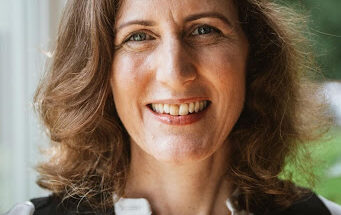INTERVIEWS BY HAILEY BULLIS/ASSISTANT CULTURE EDITOR
Student: Carter Knapp
WHAT STUDENT ORGANIZATIONS ARE YOU INVOLVED IN?
I’m involved in PAC, [which is] the Patriot Activities Council. So we help plan events that go on around campus and the famous performers that come as well.
WHAT IS A HOBBY OF YOURS?
I love playing basketball so I’ll try and go to Skyline as much as possible but just with being so busy, I haven’t done it a lot lately … Sometimes I go with my roommates. We all played together in high school, so sometimes we’ll go play together if we’re not busy.
WHAT HAS BEEN YOUR FAVORITE CLASS AT MASON?
Probably Art History 102. My professor was Christopher Gregg and it was all about Greek mythology and I just found it super interesting and this year I’m kind of sad I’m not taking it because I just—I liked learning the stories about the Greek gods and it was fun.
WHAT DO YOU WANT TO BE WHEN YOU GROW UP?
I want to be in some branch of law enforcement. I’m not really sure which one yet.
WHAT IS ONE OF YOUR MOST TREASURED CHILDHOOD MEMORIES?
On Christmas morning, going over to my grandparents house and having all our family come over and opening Christmas presents together.
WHAT IS YOUR FAVORITE THING YOU HAVE DONE AT MASON?
Going to the events put on by PAC like Mason Day, Mason Mayhem. Also I love going to the basketball games.
WHY DID YOU JOIN PAC?
I wanted get involved with a leadership role on-campus and help plan the activities that students here go to, and also to help with picking what famous people come to campus.
WHO WOULD YOU LIKE TO SEE COME TO MASON?
I would love to see Post-Malone come … I just love his music and I think it would be so cool if I could meet him too.
HOW DO YOU BALANCE HAVING A JOB, BEING IN A STUDENT ORGANIZATION AND SCHOOL?
Just making sure my schedule doesn’t have me at work too much. So I’ll work like Mondays and Thursday, and Tuesday nights are our PAC meetings, so then I’ll have like Wednesdays, Fridays and the weekend to work on homework. And I’ll still do it in-between classes on Thursdays just to make sure I don’t get behind.
Student Organization: Blockchain at Mason
WHAT DOES YOUR ORGANIZATION DO?
We look at blockchain. All a blockchain is, is a list of data except the data [is] not all in one place, so the idea [is] of decentralization and the data being everywhere. [We] talk about different elements of technology, emerging technology like artificial intelligence and blockchain. We do research to figure out how … students do projects, student blockchain startups. The other thing our organization does is provide education to any student willing to learn about blockchain and cryptocurrencies.
DOES YOUR ORGANIZATION HOLD ANY EVENTS?
We have a couple of interesting events coming up. There’s an event with CryptoPets. They’re a blockchain and cryptocurrency startup, and [they have a game] that’s similar to the Pokemon Go game using cryptocurrencies. We’re actually planning a joint event with the Entrepreneurship Club and the economics club, like a roundtable discussion that is coming up in one or two semesters.
WHAT LED YOU TO MAKE BLOCKCHAIN?
The reason why I started the organization Blockchain at Mason is because the technology is very new and it’s emerging technology, but the only way I got exposed to it was through self-education. There wasn’t really a place at Mason where you could go and talk about emerging technology like blockchain and cryptocurrencies … I want to make sure other students don’t have to self-learn and that there’s opportunities available on campus and in the Mason community.
WHAT IS ONE ADJECTIVE THAT YOU WOULD USE TO DESCRIBE YOUR ORGANIZATION?
I would probably say courage because the group in the organization, the type of technology we talk about is not something that you will find prevalent in the Mason community that is not really exposed to these forward-looking technologies. We really had to figure out a lot of the gathering interest for the club and talk about why it’s important, and we had to do a lot of self-advocacy on our own. Not all universities have these types of forward-looking discussions …We kind of took a leap of faith and it’s working out.
WHAT IS YOUR ORGANIZATION’S PROUDEST MOMENT?
Our organization got accepted into a wider initiative, a global initiative, called the Blockchain Campus where we’re working with 50 other student organizations across the globe to make good blockchain content. We’re working with other universities as well.
Alumni: Rajpreet Heir
WHAT ACTIVITIES WERE YOU INVOLVED IN AT MASON? WHAT DID YOU TAKE FROM THEM?
Through my MFA program, I got to tutor in the writing center my first year, take pedagogy courses and teach my own courses … Going into the program, I knew I had an interest in teaching as a long-term career goal, and now I know for sure that it’s something I want to pursue.
WHAT HAVE YOU DONE SINCE GRADUATING MASON?
I moved to Manhattan and found a role at Getty Images in communications, and then switched to TED Conferences. While working, I’ve published in The Washington Post, The New York Times, Cosmopolitan, The Atlantic, Teen Vogue, Literary Hub, an anthology and The Collagist (forthcoming), and was featured on a podcast through On Being Studios.
WHAT INSPIRES/INFLUENCES YOUR WRITING?
Lately, I’ve been inspired by the times we are [living] in, and how there is a need for marginalized voices. People seem to really want to know about a woman of color’s experiences right now.
As far as influences, I lucked out with three very different nonfiction professors, and together, they’re the perfect combination for me. My undergraduate nonfiction professor, Greg Schwipps, helped me develop my voice and taught me how to write a great scene. Kyoko Mori helped me make sense of my identity. Tim Denevi taught me how to push my work into new forms and how to incorporate research.
ARTICLES YOU’VE WRITTEN HAVE TOUCHED ON REPRESENTATION IN POP CULTURE. WHAT OTHER INSTANCES OF POP CULTURE HAVE MADE YOU FEEL REPRESENTED?
Bend It Like Beckham was about a Punjabi Sikh girl like me … the movie was set in England, where my parents are from, and where I was visiting the summer the movie was released. The timing couldn’t have been better, since it was at that time that I … really become aware of what it means to balance cultures.
[Hasan Minhaj’s] work makes me feel seen since he talks about being a minority and having immigrant parents. Last week, I went to a fusion Bhangra concert and felt represented, since Bhangra music comes from the area of India where my grandparents were born, and the fusion incorporates American music. Crazy Rich Asians made me feel seen, since the movie hits on diaspora.
Alumna: Jen Shelton
WHAT DO YOU DO NOW?
I am [the] full-time volunteer alumni president. I try to increase opportunities for meaningful engagement for the alumni, and also for the students and support the university … I run board meetings and help do input on events and things that involve alumni.
WHY DO YOU LIKE BEING THE ALUMNI PRESIDENT?
I enjoy it because it gives me an opportunity to give back to Mason. I really enjoyed my experience as a student, and it was an important and meaningful part of my life. So it’s nice to be able to give back in that way and support the institution I love.
WHAT IS ONE OF YOUR FONDEST MEMORIES FROM YOUR TIME AT MASON?
I think my fondest memories include the friendships and relationships that I made at the time. Also that it gave me the opportunity to grow at Mason. It’s not so binding and traditional and everything is a certain way. I think Mason students and the university allow[s] you to grow as a person in a very free way and have a chance to grow up.
WHAT ADVICE DO YOU HAVE FOR CURRENT MASON STUDENTS?
I think just to try new things. Mason has a great environment, and wonderful opportunities for pretty much everything. So if you have an interest in something, give it a try and see how it works. It’s a good time to try things and make mistakes and keep going. Just find out who you are and explore the possibilities.
WHAT WOULD YOU SAY IS YOUR BIGGEST STRENGTH?
My biggest strength is I try to put myself in other people’s shoes when approaching a problem and try to look at it from different perspectives so that I can get a better, broader view of things rather than just my own.
WHERE HAVE YOU TRAVELED?
I’m originally from Hawaii, so I was an out-of-state student originally. But I’ve lived in Virginia my whole adult life. I’ve traveled to Barcelona, Spain, Canada, the Caribbean and the Bahamas. My background is Pacific Islander, Hawaiian, Japanese, Portuguese and Mexican, so I feel like I’m a mixed plate of different backgrounds and I really appreciate different people’s culture.
WHAT IS YOUR FAVORITE PLACE IN THE WORLD?
Probably Hawaii. I didn’t realize at the time—growing up there I just wanted to get off the rock, get off the island—it really has a unique element to it. [It’s k]ind of spiritual—people say “Aloha spirit.” It’s more about people and family and friends that it is about trying to accomplish the next gold star in your career. It has beautiful scenery—oceans, lava, palm trees—and the food is wonderful. It’s a good place to be, a good place to recharge and reset your mind when you [visit]. So I love to visit there, and I always feel energized.







